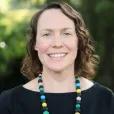Singapore
Learn more about Singapore, one of the destinations for U.S. educators through the Fulbright Distinguished Awards in Teaching Research Program.
3 to 6 months
Singapore
None
1.364917, 103.822872
Placement Information
- Partner Organization: U.S. Embassy Singapore in cooperation with Singapore's Ministry of Education
- Eligible Program Dates: 3-4 months from Mid-January – May 2026. Participants must arrive in Singapore by early January 2026, but program length can vary.
- Host Institution Expectations: Participants will be placed at the National Institute of Education, Singapore’s only teacher training college, while experiencing attachments by rotation across local schools.
- Language Requirement: None
- Monthly Allowance: Between $6,200 - $6,525 (exact amount to be confirmed at a later date).
- Dependent Information: An allowance of $2,000 per eligible dependent will be provided as part of the Fulbright award. International students seeking admission to a local school must take a centralized test that assesses their English literacy, numeracy, and reasoning abilities. Admission is not guaranteed but is subject to the student's performance on the test and the number of vacancies available in local schools. For more information, please visit Singapore's Ministry of Education's website. Learn more about admissions for international students. Additional options for school-aged dependents include attending an international school (there are many options, but tuition is high), homeschooling, or pursuing distance education courses. Please note that tuition support for dependents is subject to availability and requests for funding are reviewed on a case-by-case basis. Applicants are strongly encouraged to research schooling options for their dependents during the application phase.
Country Overview
Sir Stamford Raffles established a British trading post in Singapore in 1819, which eventually led to Singapore’s establishment as a British colony in 1824. Singapore joined the Federation of Malaysia in 1963, and on August 9, 1965, Singapore separated from Malaysia to become an independent and sovereign state. Singapore’s spirit of innovation and resilience has allowed it to become one of the world's most prosperous countries with strong international trading links and a robust education system known as one of the best in the world. The population is 5.92 million, with an additional non-resident population of 1.77 million as of June 2023. Singapore’s ethnic breakdown is as follows: Chinese 74.1%, Malay 13.6%, Indian 9.0%, Other 3.3%. There is a large expatriate community.
Educational System Overview
Singapore believes education should mold the future of the nation, and aims to develop students into confident persons, self-directed learners, active contributors and concerned citizens.
Singapore constantly leverages emerging technologies to enhance students’ learning experience, to better prepare them for the future. Similarly, students are encouraged to develop a spirit of calculated risk-taking, push boundaries, and pursue innovative breakthroughs.
Students are empowered to learn for life. Porosity and flexibility in post-secondary pathways allow students to customize educational experiences based on interest and aptitude. Opportunities are also provided for Singaporeans to learn, unlearn, and relearn knowledge and skills, both in school and throughout life.
Values and competencies are key pillars in Singapore’s education system. Opportunities are given in our Character and Citizenship Education and Social-Emotional Learning for students to grow into empathetic citizens. Beyond this, Singapore has identified a set of 21st Century Competencies for students to develop that are essential for a promising and purposeful future.
Teachers are at the heart of education, and Singapore prioritizes the development of the fraternity. Opportunities are provided for educators to learn and broaden their perspectives through avenues such as courses, professional communities, short-term industry attachments and dialogue sessions with industry experts.
Possible Topics of Interest for U.S. Educators
- 21st century competencies for the future
- Intercultural cooperation
- AI in education
- STEM education
- Pedagogical development
- Assessment literacy



